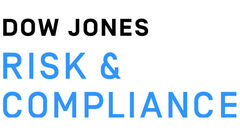
Sanctions against Russia: implementation in practice
The EU sanctions against Russia are a moving target. Some examples and tips for proper implementation in practice.

The EU sanctions against Russia are a moving target. Some examples and tips for proper implementation in practice.
Shortly after Russia launched its invasion of Ukraine, sanctions quickly became the tool of choice for defending Western values against this breach of international law. The EU wasted no time in imposing a first round of financial sanctions on February 23, 2022, and has steadily ratcheted up its sanctions against Russia since then. The nineteenth EU sanctions package has been adopted on October 23, 2025, and has taken effect in its entirety one day later.
The frequency of changes to the sanctions since the war began has led to considerable problems and uncertainty in their implementation. Companies previously unfamiliar with export control regulations must now check their Russian business activities for any current restrictions under EU embargo regulations. The EU uses export control mechanisms for its sanctions, so it’s critical for any company wishing to maintain business relations with Russia to have a basic knowledge of export controls.
The following four checks, in the order presented, help you safely navigate the legal requirements of export control law in the EU.
Trader guidance on sanctions evasion risks to prevent products ending up in Russia through indirect routes.
But be careful, because the bans on the provision of economic and/or financial resources and the bans on doing business with state-owned enterprises apply to both direct and indirect business. This means that even a business partner not directly subject to such bans may be subject to an indirect ban if owned by a sanctioned entity such as an oligarch. Learn more in our article The case of Roman Abramovich: The impact of financial sanctions.

Bans on indirect provisions? PEP List? Adverse Media? Comprehensive security for your transactions with AEB software and extended content from Dow Jones.
A Dutch company enters into a sales contract with a Russian business partner for goods listed in Annex XXIII of the Embargo Regulation 833/2014 against Russia. The contract stipulates delivery of the products not to Russia but to a company based in Georgia. Even if the business partners of the Dutch company offer assurances that the goods are ultimately destined for Georgia and will not be shipped on to Russia, the Dutch company is subject to Embargo Regulation 833/2014 against Russia by virtue of the sales contract entered into with the Russian business partner. Entering into a contract for these goods is prohibited and results in an embargo violation for the Dutch company.
A German company enters into a sales contract with a Georgian company for goods listed in Annex XXIII of Embargo Regulation 833/2014. The goods are to be delivered to Russia through the Georgian contractor. The broad scope of EU embargo regulations through the concept of delivery means that providing listed goods in any way to a recipient in an embargoed country falls under the purview of the respective embargo regulation. The German company is exporting goods to Georgia under the general provisions of the Dual-Use Regulation and Foreign Trade and Payments Ordinance. There is also a delivery to Russia that falls within the scope of the prohibition of Art. 3k of Regulation 833/2014 for goods listed in Annex XXIII. Violations of EU sanctions regulations are punished under the German Foreign Trade and Payments Act as embargo violations and, depending on the case, may lead to criminal charges.
Questions 1 and 2 complete the embargo-specific tests. The general provisions of export control law also apply.
Business with Russia remains possible in principle as long as the EU does not impose a total embargo on Russia. Business activities that are not restricted based on the business partner or under embargo regulations must be reviewed under the Dual-Use Regulation and the Foreign Trade and Payments Ordinance. Questions 3 and 4 address these checks.
Many jurisdictions around the world issue and frequently amend embargo regulations. AEB's Export Controls software runs automated embargo checks for you in the background of your export transactions to help you prevent violations.
The EU sanctions against Russia are complex and subject to frequent changes. Companies that wish to do business with Russia must take the appropriate organizational measures to enable a prompt response to changes in the legal requirements. This makes comprehensive knowledge of EU export control law essential.